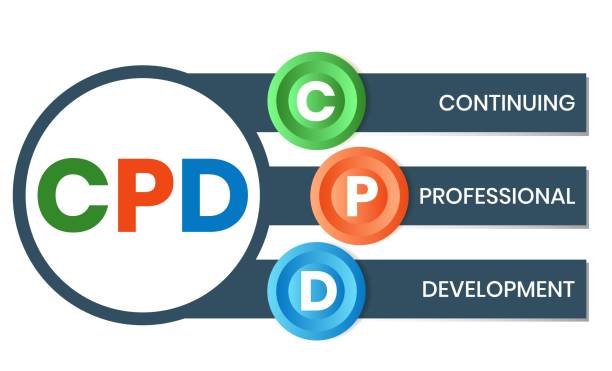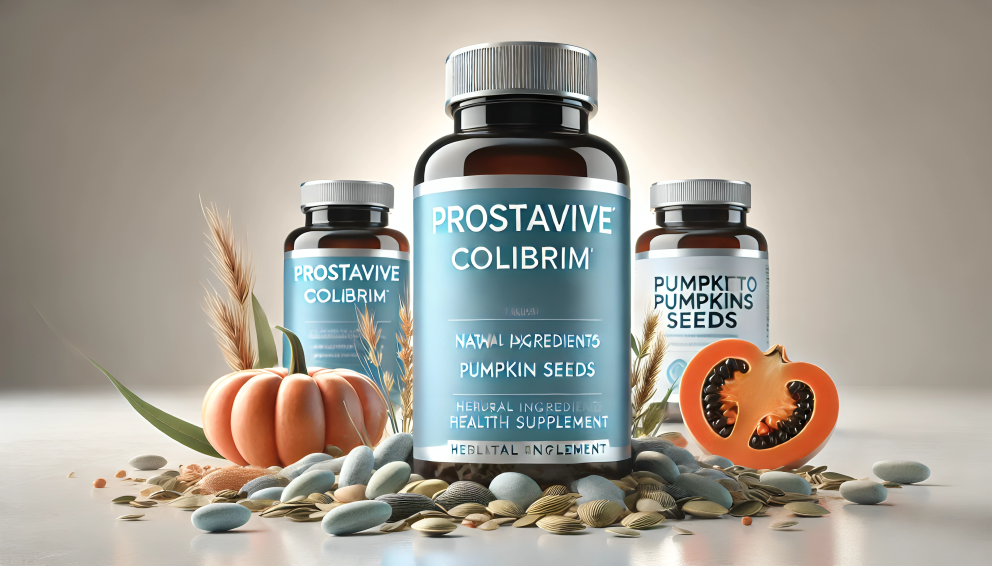Health
wellhealth how to build muscle tag effectively

Building muscle is a journey requiring consistency, strategy, and knowledge. Whether you’re a beginner or looking to refine your approach, understanding the essential components of muscle growth is vital. This guide will cover the key strategies for achieving your fitness goals efficiently and effectively.
SETTING CLEAR GOALS
Establishing specific objectives ensures you remain focused on your muscle-building journey. Goals should be measurable and realistic to sustain motivation. Tracking progress helps determine what strategies work best for you.
UNDERSTANDING THE ROLE OF DIET
Nutrition plays a central role in muscle development. A calorie surplus, achieved by consuming more calories than burned, fuels muscle growth. Emphasis should be placed on proteins, as they provide the building blocks needed for repair and growth.
Lean protein sources like chicken, fish, eggs, and plant-based options such as tofu or lentils are recommended. Additionally, carbohydrates are essential for energy, while healthy fats aid hormonal balance, which is critical for muscle building.
IMPORTANCE OF CONSISTENT WORKOUTS
Consistency in training is fundamental. Exercises should target different muscle groups to ensure balanced growth. Compound movements, such as squats, deadlifts, and bench presses, are highly effective because they engage multiple muscle groups simultaneously.
Weight progression, often referred to as progressive overload, ensures continual growth. Gradually increasing the weight or resistance challenges the muscles, leading to adaptations and growth.
DESIGNING AN EFFECTIVE WORKOUT PLAN
A structured plan enhances results. Beginners benefit from full-body workouts three times a week, while advanced individuals might prefer split routines. Rest periods between sets should be tailored to goals; shorter rest promotes endurance, while longer rests enhance strength.
THE SIGNIFICANCE OF RECOVERY
Muscles grow during recovery, not during workouts. Rest days, adequate sleep, and active recovery activities such as yoga or light stretching support muscle repair and reduce injury risks. Aiming for 7-9 hours of sleep per night optimizes growth hormone levels.
SUPPLEMENTS AND THEIR BENEFITS
Supplements are not mandatory but can complement your diet. Protein powders provide a convenient way to meet protein goals, while creatine enhances performance and muscle volume. Consulting a healthcare professional ensures supplements are safe and effective for individual needs.
AVOIDING COMMON PITFALLS
Muscle growth can be hampered by overtraining, poor nutrition, or neglecting recovery. Listening to your body is essential, as signs of fatigue or persistent soreness may indicate the need for rest.
MONITORING AND ADJUSTING PROGRESS
Regularly assessing progress helps identify areas for improvement. Measurements, photos, or performance benchmarks provide a clear picture of how effectively the plan works. Adjusting strategies ensures continued growth over time.
STAYING MOTIVATED
Maintaining motivation is challenging but vital. Setting milestones, celebrating achievements, and engaging with a supportive community can make the journey enjoyable. Embracing the process rather than focusing solely on the outcome fosters long-term success.
Building muscle requires a combination of effective strategies, consistency, and patience. By focusing on these principles, your goals can be achieved more effectively, leading to improved strength and overall well-being.
Health
Understanding Common Cosmetic Surgery Myths

The world of cosmetic surgery is clouded with myths and misconceptions that usually deter individuals from making informed decisions. One such prevalent belief is that these medical procedures are a luxury only accessible to the wealthy elite. However, with modern financial solutions and flexible payment plans, these misconceptions are slowly fading. Specialists in plastic surgery Raleigh NC reveal that options such as financing and medical credit cards are making these procedures accessible to a wider audience, proving that cosmetic surgery is not beyond the reach of the average person. In this article, we’ll unravel some of the most pervasive myths surrounding cosmetic surgery, providing clarity for those who might be considering enhancing their appearance or seeking medical benefits through these procedures.
In addition to financial myths, there are societal misconceptions regarding who undergoes cosmetic surgery and why they do so. Is it only for women? Is it driven solely by vanity? By dispelling these myths, we aim to provide a clear perspective that empowers individuals to make choices rooted in fact rather than fiction. Dive in with us as we explore the reality of cosmetic surgery and debunk some of the common myths associated with it.
Myth 1: Cosmetic Surgery Is Only for the Wealthy
Celebrity culture perpetuates the stereotype that only the wealthy can access cosmetic surgery. Yet, as we move forward in this new age of medical economics, cosmetic surgery is becoming a reality for many due to competitive pricing and payment flexibility. According to the American Academy of Facial Plastic and Reconstructive Surgery, the options for financing these procedures have expanded, creating an inclusive environment where a broader demographic can access the benefits of cosmetic enhancements. This shift is enabling more individuals to consider procedures they might have previously dismissed due to financial constraints, making cosmetic surgery not just a possibility but a practical option on the table.
Myth 2: Only Women Get Cosmetic Surgery
The idea that cosmetic surgery is a gender-specific domain, largely dominated by women, is increasingly outdated. While historically, women have been the primary recipients of these procedures, the numbers are shifting. Men account for an increasing percentage of cosmetic surgery patients, motivated by a variety of personal and professional factors. From facial refinements to body contouring, men are exploring these options to maintain competitiveness in the workplace and boost personal confidence. This trend is not only a passing fad; rather, it reflects men’s evolving views on appearance and self-care as they become more aware of the life-changing potential of these treatments.
Myth 3: It’s Only for Vanity
Another widespread myth is that cosmetic surgery is purely a pursuit of vanity. While improving one’s appearance is often a motivating factor, the benefits of cosmetic procedures extend far beyond aesthetics. Many individuals opt for surgery to resolve medical issues, such as reconstructive surgery after accidents, breathing improvements through rhinoplasty, or reducing physical discomfort through procedures like breast reduction. The article from WebMD elaborates on various health benefits linked with cosmetic surgery, substantiating how these procedures can result in better quality of life. For some, the mental health benefits of enhanced self-esteem and body image are transformative, underscoring the complex motivations behind choosing cosmetic surgery.
Myth 4: Results Always Look Unnatural
The fear of unnatural results has long deterred people from considering cosmetic surgery. However, the field has seen remarkable advancements in techniques and technology, allowing for aesthetic outcomes that look subtle and natural. Skilled surgeons now tailor procedures to harmonize with each patient’s unique features, minimizing visible signs of surgery. The skill of a cosmetic surgeon is in creating enhancements that accentuate natural beauty without coming across as overdone or inappropriate. When entrusted to a qualified professional, patients often find that their results surpass even their most optimistic expectations, contributing to a more authentic sense of self.
Myth 5: Recovery Takes Forever
Long recovery periods are often a concern for those contemplating surgery. The perception that extensive downtime is inevitable is exaggerated. While some procedures do require a recovery phase, innovations in surgical techniques have greatly reduced healing times. Many contemporary procedures are minimally invasive, involving less trauma to the body and resulting in faster recovery. This development allows patients to resume daily activities or return to work much earlier than anticipated, alleviating one of the major concerns associated with undergoing surgery. In consultation with their doctors, patients can better understand the realistic timelines for recovery based on their specific procedures.
Myth 6: Non-Surgical Options Are Always Better
Non-surgical options such as injectable fillers, chemical peels, and laser treatments are popular for their minimal downtime and non-invasive nature. Yet, they are not universally the better choice over surgical interventions. Each treatment type has unique advantages and limitations, and the decision between surgical and non-surgical treatments should be based on the desired outcome, longevity of results, and personal health considerations. For long-lasting impacts or profound changes, surgery can be the optimal route. Consulting with professionals helps individuals weigh these options, making sure they choose a path that aligns with their aesthetic and personal goals.
Health
How Thyroid Health Affects Overall Wellness

Introduction to Thyroid Health
Despite its modest size, the thyroid gland is essential in orchestrating our physiological well-being. Positioned at the base of the neck, this butterfly-shaped gland exerts profound influence over various metabolic functions. It’s estimated that thyroid disorders affect millions globally, yet a significant number remain undiagnosed. With such a high prevalence, understanding thyroid health has never been more critical.
Thyroid disorders often sneak up unnoticed, with symptoms manifesting gradually over time. Unfortunately, these symptoms can mimic other health problems, leading to a delay in diagnosis. This delay can lead to prolonged discomfort and a diminished quality of life. By promoting awareness and understanding of thyroid health, individuals can better advocate for their health needs and seek timely medical intervention as necessary.
Role of the Thyroid Gland in the Body
Central to its functionality, the thyroid gland produces key hormones known as thyroxine (T4) and triiodothyronine (T3). These hormones are primarily responsible for regulating metabolic processes, which determine the speed and efficiency of how the body utilizes energy. Metabolic rate, heart rhythm, and even body temperature are within the domain of the thyroid’s influence, indicating its extensive reach across bodily functions. When the thyroid works optimally, it contributes significantly to maintaining homeostasis—the body’s internal environment remains stable and balanced. Conversely, any imbalance in hormone production can lead to significant disruptions, underscoring the critical nature of maintaining thyroid health for holistic wellness. For those experiencing symptoms of thyroid imbalance, consulting a Denver thyroid specialist can provide personalized insights and treatment options to help restore optimal thyroid function. A specialist can also help differentiate between thyroid conditions and other underlying health issues that may mimic similar symptoms. Early intervention is key to managing thyroid disorders before they lead to more severe health problems.
Common Thyroid Disorders
Thyroid disorders commonly manifest in the form of hyperthyroidism and hypothyroidism, each presenting with its spectrum of symptoms and challenges. Hyperthyroidism, characterized by an overactive thyroid gland, results in the excessive circulation of thyroid hormones. This condition often leads to rapid weight loss, heightened sensitivity to heat, anxiety, and palpitations. It reflects the body’s accelerated metabolic state.
In contrast, hypothyroidism occurs when the thyroid gland is underactive, producing insufficient hormone levels to meet the body’s needs. This deficiency slows down metabolic processes, leading to symptoms such as weight gain, lethargy, cold intolerance, and depressive moods. Hashimoto’s thyroiditis, an autoimmune disorder, is a prevalent cause of hypothyroidism, where the immune system mistakenly attacks thyroid tissue.
Symptoms of Thyroid Imbalance
The diversity of symptoms associated with thyroid imbalances can make them challenging to identify. Common signs include overwhelming fatigue, unexplained fluctuations in body weight, and notable mood changes. Such symptoms are easily confused with those of other conditions, resulting in a diagnosis maze for many patients. However, remaining vigilant to these symptoms is crucial for early detection.
Empowered with this knowledge, individuals are better positioned to communicate effectively with healthcare professionals, ensuring that thyroid concerns are not overlooked. Early intervention can prevent the exacerbation of symptoms and improve overall life satisfaction.
Impact of Thyroid Health on Mental Wellness
The medical community increasingly recognizes the intersection of thyroid health and mental wellness. Imbalances in thyroid hormone levels can significantly affect mental states, leading to disorders such as depression and anxiety. As outlined by Harvard Health Publishing, these hormones play a critical role in brain chemistry, influencing emotional regulation and mood stability.
A healthy thyroid supports cognitive function, emotional resilience, and stability. Addressing thyroid imbalances alleviates physical symptoms and enhances mental well-being, supporting a more balanced and fulfilling life.
Diet and Lifestyle Tips for Thyroid Support
Dietary and lifestyle modifications are key to supporting thyroid health. A balanced diet of iodine, selenium, and zinc can foster optimal thyroid function. Iodine-rich foods such as fish, seaweed, and selenium, as well as zinc sources like Brazil nuts and legumes, are beneficial. These nutrients are vital in synthesizing thyroid hormones and maintaining gland health.
Regular physical activity and stress management techniques, such as yoga and mindfulness, enhance thyroid health by balancing hormone levels and promoting well-being. Implementing these strategies empowers individuals to manage their thyroid health actively in conjunction with medical advice.
Innovative Research and Development
The field of thyroid research is dynamic, with ongoing efforts to uncover new insights into disease mechanisms and treatments. The National Institutes of Health continues to spearhead initiatives that explore groundbreaking therapies and diagnostic techniques, aiming to improve patient outcomes and quality of life. These advancements herald a future of personalized medicine, where treatment plans are closely aligned with an individual’s unique health profile.
Such research highlights the evolving understanding of thyroid health and signifies hope for more effective management and improved quality of life for those affected by thyroid disorders.
Conclusion: Incorporating Thyroid Care into Daily Life
The integral role of the thyroid gland in overall wellness is unequivocal. Individuals can safeguard their health proactively by incorporating routine thyroid checks and adopting a nutrient-rich diet. Despite its size, the thyroid’s influence is vast, necessitating awareness and diligence.
Informed choices and professional medical guidance form the bedrock of effective thyroid management. As individuals prioritize their thyroid health, they contribute to a holistic approach to wellness, fostering a healthier, more vibrant life.
Health
Don’t Get Stuck: Therapy CPD That’s Actually Fun

Continuous Professional Development (CPD) is essential for therapists who wish to stay current in their field. However, many view it as a monotonous task filled with long hours of passive learning. But imagine if CPD could be invigorating and enjoyable! That’s the revolutionary idea embraced by initiatives like The Greenane Center, which challenges the norm by transforming CPD into delightful experiences. By using creative approaches, therapists can turn mandatory learning into sessions they eagerly anticipate. This transformation is rooted in the idea that development should not only educate but also inspire and energize.
Historically, CPD in therapy conjured images of tedious lectures and endless note-taking. But the landscape is changing. More institutions recognize the importance of making learning engaging. This shift doesn’t just boost morale; it fosters better retention and application of learning. The Greenane Center exemplifies this change by offering courses that break traditional molds, showing that CPD can be both effective and enjoyable. Understanding why enjoyable CPD matters can significantly enhance not only therapists’ professional lives but also their clients’ healing experiences.
The Changing Landscape of Therapy CPD
The realm of therapy for CPD is witnessing a significant transformation. Traditionally seen as a mandatory requirement, CPD is shifting toward a more interactive and engaging model. The days of attending purely lecture-based sessions are waning, as there’s a recognized need to integrate enjoyment and interaction into learning. Modern CPD trends mirror shifts across various professional spectra, where active participation is central to the learning process. This change emphasizes acquiring knowledge and fostering a love for continuous learning. By shifting the focus towards a more engaging model, CPD becomes an avenue for growth that therapists can wholeheartedly embrace.
Why Making CPD Enjoyable Matters
The link between enjoyment and learning is well-established in educational psychology. When learners find joy in the process, the retention of information and the eagerness to apply new skills significantly increase. Engaging in CPD activities facilitates an environment where therapists can learn effectively without feeling burdened by obligation. This was highlighted in an article by Psychology Today, which pointed out that enjoyment enhances both cognitive absorption and application. In therapy, where professional development directly influences client care, making CPD enjoyable is not just beneficial but imperative.
Innovative Approaches to CPD
Innovation is key in transforming CPD. Traditional teaching methods are being replaced or enhanced by gamification, virtual reality sessions, and interactive workshops. These methods shift passive learning into active participation, making the process more engaging and effective. Just as technology revolutionizes other educational fields, it’s doing the same for professional development in therapy. Gamification, in particular, has shown promise; by integrating game principles, therapists engage with the material in a more competitive and, thus, more absorbing manner. This not only increases interaction but also deepens comprehension and skill retention.
Top Fun CPD Ideas for Therapists
Embracing fun in CPD offers a diverse array of options for therapists. Interactive workshops encourage hands-on participation, where the learning is as much about the experience as it is about the content. These workshops often focus on real-world applications, providing therapists with practical skills they can immediately utilize. Similarly, therapy retreats combine professional development with personal rejuvenation. By stepping away from daily routines, therapists can fully engage with the material and return to practice with renewed vigor. Finally, socio-dramatic play and role-playing sessions provide rich, empathetic experiences by allowing therapists to step into their clients’ shoes, leading to deeper understanding and empathy in practice.
Real-Life Success Stories
Real-world examples underscore the effectiveness of engaging CPD. Take the example of an art therapy workshop, where a therapist discovered new ways to integrate creativity into their practice, reigniting their passion for therapy. Another therapist found success through a mindfulness retreat, where they could apply personal insights gained to their therapeutic approach, enhancing client outcomes. Such testimonies illustrate that when CPD is enjoyable, it has profound ripple effects—enhancing therapists’ professional competencies and improving client care.
Overcoming Common Barriers
Despite its benefits, engaging in enjoyable CPD isn’t without challenges. Common hurdles include budget constraints, time limitations, and geographical barriers. However, these barriers are increasingly surmountable through online platforms and scholarships that offer more accessible modes of learning. Online learning platforms allow therapists to participate in CPD programs from anywhere, while more flexible program structures help fit it into busy schedules. Experts recommend seeking out programs that offer both online and in-person engagements, ensuring wider access and greater flexibility.
How to Choose the Right CPD Activity
Selecting the right CPD activity is crucial. A structured approach can maximize both learning and enjoyment. Therapists should start by identifying their specific learning objectives and interests. Following this, researching available options aligned with these goals will help in finding suitable activities. Finally, assessing the engagement and practical applicability of each option ensures it meets professional needs while remaining enjoyable. An Education Week article offers excellent advice on finding it that is both fun and valuable, emphasizing that the right choice can make all the difference in a therapist’s career development.
-

 Blog3 months ago
Blog3 months ago鲁Q 669FD: Understanding Vehicle Registration in China
-

 Blog3 months ago
Blog3 months agoSwatapp.me المانجا: Your Gateway to the World of Manga
-
Tech6 months ago
IPv6 Internet Is Broken
-

 Tech2 months ago
Tech2 months agoWepbound: The Future of Web Development
-

 Business4 days ago
Business4 days agoUnveiling adsy.pw/hb3: Revolutionizing Content Marketing Strategies
-

 Tech5 months ago
Tech5 months agoScamalytics: Revolutionizing Scam Detection in the Digital Age
-

 Tech5 months ago
Tech5 months agoWebmxhd: Revolutionizing Digital Connectivity
-

 Health3 months ago
Health3 months agoprostavive colibrim Benefits, Uses, and How It Works
